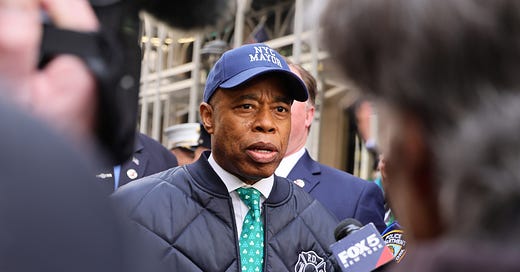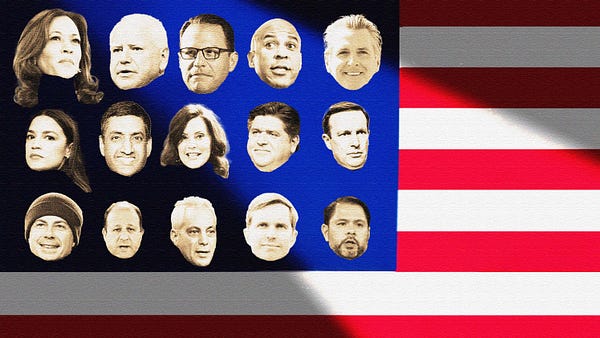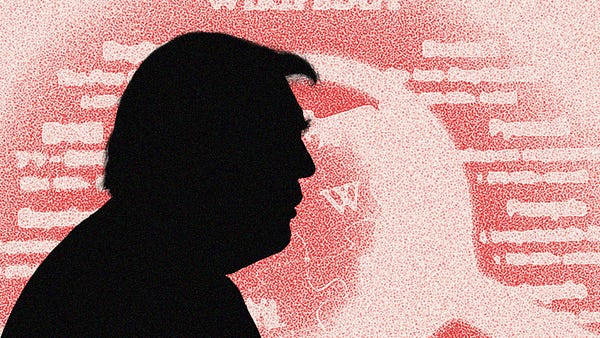
The Free Press

New York City has had a rough few years. During the pandemic, it lost four percent of its population—almost 350,000 people. It had a historic crime surge, particularly violent crime. Buildings stayed empty as people continued to work from home. Pundits all over the world declared New York over.
Last year, into that breach, stepped a new mayor: Eric Adams.
Adams—a former cop who grew up in a rat-infested tenement in Bushwick—was elected on the promise of not just bringing back New York, but also of reviving an old type of Democrat that today feels like an endangered species: a practical, personable, no-bullshit type of politician. As one congressman put it: “He’s an antidote to the party’s likability problem.”
After a year in his role, has Mayor Eric Adams lived up to the hype?
Has he fulfilled his promise to make the city safer? How will he address major educational setbacks in public schools? Does New York City risk becoming like San Francisco? What does he really think of AOC? And is his brand of politics winnable nationally for the Democrats?
BW: Are you worried that New York could become the next San Francisco or the next Los Angeles? Or is that an overblown fear?
EA: No, I’m not worried, because the mayor is Eric Adams. I’ve been in San Francisco. I’ve been in Los Angeles. I’ve been in other places where they’re trying hard to deal with this issue. But I was taking a new approach and a different approach: engagement. We went after those who were living on our streets. You’re not seeing that over-proliferation of tents and encampments in this city. In places like Tompkins Square Park, we’ve done several initiatives. We got the loudest and the most organized pushback and attacked me, said I was inhumane. No, let me tell you what’s inhumane: allowing people to live in that condition when they can’t make decisions on their own. And I refuse to do so. And you saw what we’ve done. Five thousand encampments were cleaned up on the street. We gave people care. We gave them options to care. And that is the humane way to do it. And so this will never become like San Francisco as long as I’m the mayor of this city and with the agencies that I’ve given clear instructions to.
BW: In his State of the Union address this year, Joe Biden’s big headline-making line was when he said “It’s time to refund the police.” Got a big applause. It’s what everyone was talking about. Was that the Democratic Party, or the leadership of the Democratic Party, admitting that it let things go too far? And that the talk, at least on the progressive wing of the party, about defunding or abolishing the police was foolish and has actually made the poorest Americans more vulnerable? Did you see that as a watershed moment?
EA: Yes, I did. But I also felt that that was the second level of the watershed moment. The real watershed moment happened when I won the Democratic primary and then won the election in November. My statement was clear: unlike so many who were running, talking about “defunding” and even in some cases in the country, disbanding. And I refused to succumb to the philosophical approach to public safety. We had to do intervention, prevention. Public safety is a prerequisite to prosperity, and we could have it with justice. I committed my life to doing that. And I think the president is a blue collar mayor—blue collar president—I’m a blue collar mayor. But let’s be clear on something. It was not the progressive wing of our party. It was the far-left wing of our party who are smaller in number, louder in voice, and that live, for the most part, on social media. And they believe they can govern through a tweet instead of governing on the streets, as I like to say. The overwhelming number of Democrats had a clear practice in funding police departments, knowing that it impacts communities of color the most when you have high level of crime. I believe that too many of the tabloids played into the far left of our party and did not listen to the everyday Democrat who understood there’s a balance with public safety and justice.
BW: Mayor, it’s always struck me as strange that the notion of being tough on crime is perceived as a conservative position when the people who are most harmed by crime are poor and minority communities, not the people that live in high-rises with doormen buildings who can afford to go to the Hamptons if the city goes south. How did it become the Democratic position to be, quote, soft on crime? Why is it a conservative position to be otherwise?
EA: Well, you know what, Bari? I think what has happened is that the Democrats have allowed people to hijack their message. It was the Democrats that invested in a lot of the crime prevention tactics, supporting police department tough-on-gun laws, looking to do bans on those difficult and dangerous guns that we’re seeing. It’s the Democrats that wanted to push against what we saw play out in Nashville and Florida. That’s what we’ve always had. We’ve allowed ourselves to be embarrassed to state supporting police means that you don’t support justice at the same time. And I refuse to do that. I refuse to succumb to those that believe you have to decouple public safety and justice. They go together. In fact, they must coexist for us to properly keep our cities safe. And when you look at who’s impacted, it is not those philosophical leaders that sit in their comfort in safe places. It is those who are in the poorer community, immigrant community, black and brown communities. They’re the victims of some of this egregious violence that you’re seeing.
BW: One of the key battles that’s constantly roiling in New York City is the battle over whether or not schools like Stuyvesant and Bronx Science, high-achieving elite public prep schools that admit students based on a test, should scrap that test because it’s not leading to quote, “equitable outcomes.” Those in favor of dropping the test, including your predecessor, Bill de Blasio, point to the fact that the number of black and Latino students at these schools has been dropping. For example, in 2021, only eight black students were admitted to Stuyvesant in a class of about 800. You have said that you’re going to keep admissions as they are despite the protests of some in your party. Why do you think schools like Stuyvesant and Bronx Science are important?
EA: Let’s think about this for a moment. Our answer to black and brown children not reaching proficiency is to cut off places where people have reached proficiency? I have a better response. Why not have black and brown children reach proficiency? Why do we have a school system where we’re spending over $30 billion and 65 percent of black and brown children don’t reach proficiency in math and English every year? So our answer to that is say, “Okay, accelerated learners. We’re going to close down accelerated learning opportunities because we did a terrible job with those who don’t reach proficiency.” So let’s leave the eight schools alone. Only eight. It has sucked out all the oxygen. Let’s deal with the 90-something percent of students that are not keeping pace. Let’s open up five more schools. Have a combination of what it takes to be admitted in the schools. It could be—people learn differently. If you’re dyslexic, you may not be good at taking the test, but you have other ways of balancing out. I know that because I’m dyslexic. And so what we are failing to do is look at all the opportunities to help accelerated learners use all of their creativity. And a test is not one way. A test is good for some students, but some students have different ways of expressing their gifts and their talents. And that’s what we must lean into.
BW: Mayor, you’ve called yourself the new face of the Democratic Party. What does that mean? What is the vision of the Democratic Party that you think you embody? And why do you think it’s a winning one?
EA: Well, first of all, it’s not allowing ourselves to be pigeonholed because we feel differently about certain topics. There’s this litmus test of the perfect people try to attach to everyone. I’m perfectly imperfect because we are all perfectly imperfect as human beings, and Democrats should no longer try to believe they must line up and check every box on every issue. If you are a Democrat and you believe in specialized high school, the tent is big enough to fit you inside there. If you are a Democrat, you believe in any of these other difficult topics, the tent is big enough for us all. We don’t have to line up according to this imaginary criteria that someone created and define who we should be as Democrats. I think that’s the face of the Democratic Party. That’s where the overwhelming number of Democrats are. They understand that we are diverse in our thoughts and our ideas and our likes and dislikes, and we should not be afraid to articulate them. We should be honestly communicative on how we feel about these topics.
To hear Bari’s full conversation with Mayor Eric Adams, click below:
And if you want to support more of our work, become a Free Press subscriber today:













Mayor Adams should realize that the border crisis is a national problem. He claims a white governor of Texas is bussing people to black mayors. However, the data does not support this. For example, El Paso's mayor has bussed more people to New York City. All who choose the bus sign a waiver and pick their destination. New York City is just one place among many including Houston, Chicago, Los Angeles, and Denver. They can't all stay in El Paso. This is a national problem and the federal government should help. Mayor Adams should take his concerns to Mayorkas and President Biden and not blame Texas and Arizona for this crisis.
Blow it out your ears, Mr. Mayor. You'll chat with a writer about how badly you want to maintain the little educational excellence which remains in the city, but you won't stand up for it. Mr. Sotto Voce the Cowardly Lion.